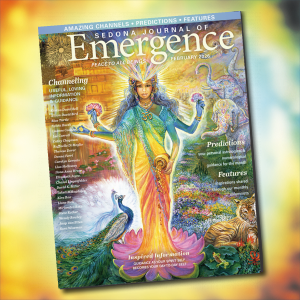The Unconditional Nature of Love and Suffering
The Unconditional Nature of Love and Suffering Dwahl Khul through Catherine Weser
Whenever there is an exchange — whenever there is an attempt to get love — oftentimes the love that is returned feels compromised, because indeed you are compromising yourself trying to get what you want, and whatever comes simply has to come back through that same lens, that same aperture, of compromise. This is known as conditional love. Now, the same, from our perspective, is true with regard to not feeling loved, or what could be generally termed suffering. Conditional suffering is feeling badly with all sorts of reasons and justifications for those feelings.
When you see that you have made choices, that you have been a part of the creation of your discomfort or suffering — and this is without blame — the kind of suffering you experience is based on your acknowledgment of your participation. This may be a difficult point to comprehend, but we see that discomfort or suffering you understood as something you participated in as conditional. Conditional suffering, just like conditional love, seems real and substantial. It engages you and can envelop you in experiencing.
You unravel feeling loved by looking at all of the things you have done to try to create the feeling of being loved. All of the strategies and agendas you hold, all of the conditions you place on just feeling loved, get analyzed. This unraveling also affects your discomfort or suffering. The way you unravel your feeling of suffering is to consider all of the things you have done that have participated — that have been a part of creating — those unloved feelings. All of the conditions of loved and unloved feelings, all of your contributions to them, maintain all the boundaries placed between these feelings. The contrast between love and suffering becomes clear and defined.
- Log in to post comments








